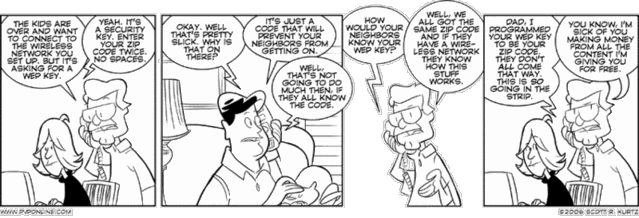
Privacy, it would seem, is a shining example of double standards nowadays. Introduce, for example, scanning machines at an airport that might help catch a terrorist with weapons on his person, and people immediately get up in arms over a perceived invasion of privacy. On the other hand, we have people who take pictures of themselves everyday for 6 years, then post the results on YouTube.
With the advent of YouTube, especially, people have completely redrawn the lines as far as privacy is concerned. And with reality TV, it’s been shown that people will do – and show – anything to get their 15 minutes of fame. It seems, nowadays, that practically anything is fair game for public consumption. Be it dancing in the “privacy” of your bedroom, a collage of photos of yourself from the last 6 pages, it’s all on YouTube. And the public at large is encouraging this.
Why? As Jeffrey Rosen mentioned in the Naked Crowd, people are trying to establish street cred among their peers by revealing more and more about themselves online. (The Naked Crowd, 2004) In other words, it’s a way of establishing one’s reputation as a ‘real’, genuine person. Also, Rosen himself quotes one Eric Fromm (The Naked Crowd, 2004) as stating that if someone fails to market himself properly, he feels he is a failure, and he is only a success if he can market himself properly. Ergo, self-validation. Alternatively, they could be really just be seeking their 15 minutes of fame.
YouTube has become a springboard for many such “internet celebrities” (YouTube, n.d.). One such celebrity is geriatric1927, an 80-year-old Englishman named Peter Oakley. Mr. Oakley made his YouTube debut in August 2006, and as of Jan 17th 2007, has been viewed over 2 million times. He also rose to the hallowed position of most subscribed user in just over a week, displacing many incumbents who had occupied the list since YouTube’s launch. As of Nov 25th 2006, Mr. Oakley has over 30,000 subscribers, and currently occupies the 7th spot on the most subscribed list. (geriatric1927, n.d.)
How has this come about?
Basically, all Mr. Oakley has done is put his life stories on YouTube, as narrated by him. Even the title of his videos, Telling It All, is an indication of his desire to, well, tell all. It’s also interesting that in this day and age of people doing extremely stupid things for fame or people simply hoping to be the Next Big Thing, Mr. Oakley has achieved the fame that he has. Why? After all, it’s just some old dude telling stories. Comments on his videos are for the most part positive, and in fact, negative or rude comments are actually frowned upon by the YouTube community at large (Response from the public, geriatric1927, n.d.) Part of Mr. Oakley’s popularity stems from his unusual (for his age) level of tech-savvy, and in fact he has been called the ‘coolest old dude alive’ because of the aforementioned tech-savvy, and the fact that he uses videocasting, something considered to be for the young. He has also been lauded for his warm, ‘grandpa-like’ style of story telling. All this ties into what Rosen was talking about with regards to sincerity and authenticity (From sincerity to authenticity, The Naked Crowd, 2004), i.e. he is consistently honest in portraying his image of an old man sharing stories with the young. He is himself.
Interestingly enough, Mr. Oakley has actually spurned media attention, preferring to talk only to the YouTube community through his videos, in his own informal and personal way, steadily rejecting offers from TV and radio stations to interview him, giving in only to the BBC (geriatric1927, n.d.). Thus, he is unique in that he is not out for his 15 minutes of fame, simply for the sake of telling stories. Again, simply being himself.
In conclusion, perhaps sacrificing some of your personal privacy, putting your life story on the internet may or may not be such a bad thing. Similar to blogs, such an act may be one of catharsis, and it may also gain the world a true gem in a kindly old grandfather amongst a web full of poseurs.
___________________________________________________________
References:
Rosen, Jeffrey (1999). “The Naked Crowd" Retrieved March 9th, 2007 from http://www.spiked-online.com/Printable/0000000CA5FF.htm
Geriatric1927, n.d. In Wikipedia, the Free Encyclopedia. Retrieved 23:20, March 9th, 2007, from http://en.wikipedia.org/wiki/Geriatric1927
YouTube, n.d. In Wikipedia, the Free Encyclopedia. Retrieved 23:20, March 9th, 2007, from http://en.wikipedia.org/wiki/YouTube
No comments:
Post a Comment